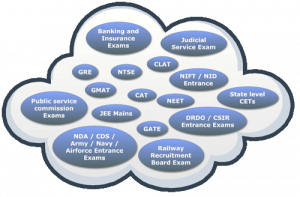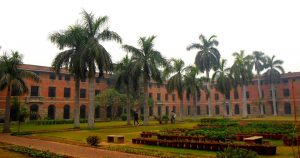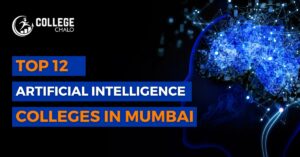Best Books to Read in 2023
Best Books to Read in 2023 Are you a bookworm or a bibliophile, if yes, then this is the ...
MSc Economics is a two year post graduation programme that deals with analysis of various economic issues from a scientific point of view.
This subject uses mathematical tools, statistics tools or formulas to understand various nuances like inflation, employment, foreign investment, trade trends which are part of economics.

The difference
Economics course is largerly popular as MA Economics or BA Economics as it is offered as a programme under arts or humanities category.
Many may not be aware that Economics is also being offered as a programme in Science category – as MSc Economics.
Though for the most part there may be no major differences between BA/MA Economics and MSc Economics, there are certain minor differences between both the degrees.
BA/MA Economics is generally deals with various lessons in a theoretical manner where lot of classroom sessions are involved.
Though one has to deal with statistics, figures once in a while in BA/MA Economics, larger relevance is for theory.
However, MSc Economics involves calculations using various formulas to understand different activities on the economic arena along with good emphasis on understanding theoretical lessons.
MSc Economics tries to understand various concepts in a practical manner through figures, graphs, statistics.
MSc Economics students try to understand the economic data using the standard formulas of Mathematics and Statistics subjects.
They try to apply the formulas of maths and statistics towards understanding ecnomic activity.
Eligibility
The basic eligibility criteria to study MSc Economics is a pass in graduation in any discipline.
However, criteria of eligibility may vary from one educational institution to the other.
Certain educational institutions may demand applicants applying for MSc Economics to have BSc Economics as their qualification in their undergraduation with minimum 50 percent pass marks.
While couple of other colleges may ask MSc Economics applicants to have a pass in BSc in any discipline with maths or economics as one of the subjects.
Certain other colleges even allow engineering students also to study MSc Economics.
Candidates willing to study MSc Economics can search for the required colleges and visit their respective websites to know more about the eligibility criteria to apply for MSc Economics.
Colleges and fees
There are many educational institutions across India that offer MSc Economics.
Some of the popular ones to offer MSc Economics are IIT Kharagpur, IIT Roorkee, University of Calcutta, Shiv Nadar University and Narsee Monjee Institute of Management Studies.
The fees to study MSc Economics at IIT Kharagpur is said to be about Rs 24,465 annually.
The same at IIT Roorkee is said to be about Rs 26,500 annually.
The fees to be paid to study MSc Economics at University of Calcutta is Rs 2,314 annually.
The same at Shiv Nadar University is Rs 2.10 lakhs annually.
The fees at Narsee Monjee Institute of Management Studies to study MSc Economics is Rs 2.0 lakhs.
Point to remember
Students willing to study MSc Economics must remember that the total course fee on an average would be around Rs 30,000 to Rs 2 lakhs.
Admission process
There are two types of processes for admitting students in MSc Economics.
The first type is merit based and the second way entrance test based.
Merit
Merit based admission is nothing but giving students a seat to study MSc Economics based on their score in undergraduation.
Students can apply for MSc Economics seat in these colleges and they will be shortlisted based on their score in undergraduation exam and availability of seats.
Some colleges may demand students to have atleast 60 percent pass marks or above in undergraduation exam if they wish to apply for MSc Economics.
So students better have high scores in the qualifying exam if they are applying for MSc Economics under merit based system.
University of Calcutta is among those institutions that offer seat under merit based system.
Entrance Test
Obtaining a seat in MSc Economics in certain other colleges or universities may require students to pass entrance exams.
Candidates trying to apply for MSc Economics under this system will apply for the colleges and then take part in a written test conducted by them.
The other way is to apply for the written exams at the respective official websites and appear for the test.
After getting the required score, candidates have to apply for counselling or interview where students are shortlisted based on their marks in undergraduate exam and score in the written test and availability of seats.
Some of the popular institutes that admit students into MSc Economics through written tests are IIT Kharagpur and Narsee Monjee Institute of Management Studies.
Popular exams
Some of the popular exams conducted to admit students into MSc Economics are IIT JAM, ISI Entrance Test and WAT and PI of Symbiosis School of Economics.
ISI Entrance Exam
Indian Statistical Institute (ISI) conducts this exam to offer seat into various undergraduation and post graduation programmes.
One of the popular course offered here is MSc in Quantitative Economics (MS QE).
This is a two-year advanced programme in Economics and its applications with special emphasis on quantitative methods.
Candidates who has a 3-year Bachelor’s degree in any discipline with Mathematics as a subject at the intermediate (10+2) level can apply for the course.
The written test will have multiple-choice and short answer type questions in both Economics and Mathematics at the undergraduate level.
IIT JAM exam
IIT Joint Admission Test for Masters (JAM) is an exam conducted by either by any one of IITs or IISC Bangalore by taking turns.
Candidates who pass this exam get to study post graduate MSc courses in IITs or IISC Bangalore.
Needless to say, aspirants seeking to study MSc Economics in IITs must pass this exam.
Those who get good score can also enroll for joint PG programmes – MSc and PhD. These type of programmes are also known as PG + PhD joint programmes.
 PI and WAT
PI and WAT
Applicants who apply for MSc Economics in Symbiosis School of Economics must attend Personal Interaction (PI) and Written Ability Test (WAT).
Applicants, as a part of PI, will interact with a panel of faculty members and experts who will analyse their knowledge and ability to understand various concepts related to economics, mathematics and statistics.
WAT involves writing an essay on any relevant topic and this will bring out the writing ability of the candidates.
What does one learn
The lessons students would learn in MSc Economics are from wide range of subjects.
The first year/Semester 1
The first year or Semester 1 in MSc Economics will have lessons related to Environment and Economic Development, Quantitative Methods, Macroeconomics, Microeconomics.
Basic concepts and applications, Mathematical modeling, optimization, game theory, statistics and econometrics.
Also read ‘Know about the government jobs in 2021 which can be applied right now‘
Economics related to large-scale or general economic factors.
Economics about individual decisions and single factors.
First year/Semester 2
Game Theory, Economic of Natural Resources, Econometrics, Economic development in India, Study about mathematical models with regards to conflict and cooperation between intelligent rational decision-makers.
Economics related to using mathematical methods in analysing economic systems and processes.
Second year/Semester 3
Advanced econometrics, Trade and the environment, Time series and regression of analysis.
Microeconomics II, Advanced concepts and applications, Basic concepts, Concepts and applications.
Second year/Semester 4
Indian agriculture in global scenario, ecological economics, study theory, interdependence and coevolution of human economies over time and space.
Distance mode
The course is also available in the distance education mode.
Institute of Distance and Open Learning of Gauhati University offers MSc Economics in distance learning mode.
Course takes two years to complete in distance learning mode.
Candidates willing to apply for the course must be a graduate with 50 percent pass marks. The fees to be paid to study the course is about Rs 6,000 to 10,000 per year.
Career and pay prospects
Lot of job opportunities await students who complete the programme.
After studying MSc Economics, students can target jobs like economist, financial managers, professors, government service and policy analysts.
Economist
Economists are those who do indepth research on economic issues and come out with predictions as to how the present trends would impact future economic transactions.
Many NGOs, Government Organisations, Research Institutes hire economists paying them a good salary.
The annual pay package of an economist could be around Rs 6.18 lakhs.
Financial Managers
These are the personnel who look after financial related affairs in the company they are working for.
They may commence their career at a junior level and as time moves ahead, they can become financial managers post gaining experience.
Salary for financial managers is expected to be around Rs 6.4 lakhs per annum.
Professor
Post completion of the course, candidates can also aim to become a teacher in the Economics department of reputed colleges or universities.
However, though one can get a junior teaching position in the beginning, post completion of PhD in the subject, candidates can even become a professor.
The annual salary package of a professor is around Rs 5 lakhs.
 Policy Analyst
Policy Analyst
Policy Analysts are those who study the impact of various policies, decisions implemented in connection with economic issues.
Post study, analysts come up with suggestions for improving the outcome of the policies, decisions implemented.
These professionals involve themselves in analysing large volumes of data with regards to economic issues as a part of their job.
Government and private organisations hire policy analysts in large numbers. Policy analysts are also consulted at the time of preparing the budget by government.
The annual salary for policy analyst is expected to be around Rs 6.25 lakhs.
Government service
Students of MSc Economics can even apply for IES officers. Indian Economic Service officers take up research and analysis of economic issues and come up with information required for implementing economic policies.
They also monitor various policies implemented and study their outcomes. Post study, they come up with suggestions to improve the outcomes.
 Post study
Post study
Post study, MSc Economics students can also consider enrolling for MBA also.
Knowledge of economics and business management can offer a whole range of well paid jobs for the students at various levels.
Post MBA study, students can enroll for a PhD and after completing a doctorate they can join as a professor in a management institute.
S Vishnu Sharmaa now works with collegechalo.com in the news team. His work involves writing articles related to the education... (Full bio)

Best Books to Read in 2023 Are you a bookworm or a bibliophile, if yes, then this is the ...

In the exhilarating journey of 10 Proven Memorize Techniques for Students learning, memory is your trusty companion. Whether ...

Top 20 toughest exams in world is about exams in the world that required very hard work to ...

Top 20 toughest exams in India - Exams are the perhaps most toughest moments for any student. A ...

Top 20 Colleges of DU Getting admissions to the top 20 colleges of DU is a dream for every ...

Top 20 NITs of India - Amongst the 31 NITs in India, today, we are talking ...

Here are the Top 12 Artificial Intelligence in Mumbai. Artificial intelligence (AI) refers to the simulation of human ...

As you stand on the Best Science Courses after 12th academic journey, the realm of science beckons, offering ...
Millions of students have entrusted CollegeChalo to facilitate their seamless and smooth admission process to their dream colleges and universities. With CollegeChalo, you can gain a competitive edge by easily accessing exam and course details to stay ahead of the admission journey. What are you waiting for?
Search your dream college